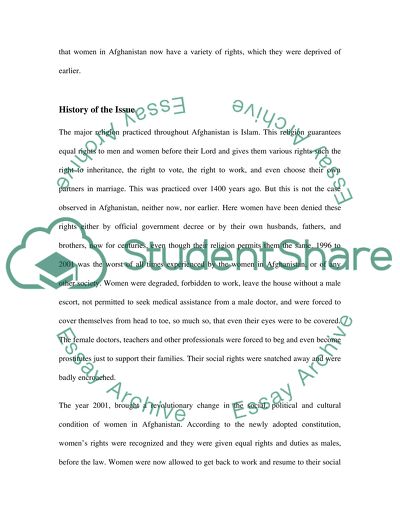Cite this document
(“Women's rights in Afghanistan Essay Example | Topics and Well Written Essays - 2500 words”, n.d.)
Women's rights in Afghanistan Essay Example | Topics and Well Written Essays - 2500 words. Retrieved from https://studentshare.org/miscellaneous/1529403-womens-rights-in-afghanistan
Women's rights in Afghanistan Essay Example | Topics and Well Written Essays - 2500 words. Retrieved from https://studentshare.org/miscellaneous/1529403-womens-rights-in-afghanistan
(Women'S Rights in Afghanistan Essay Example | Topics and Well Written Essays - 2500 Words)
Women'S Rights in Afghanistan Essay Example | Topics and Well Written Essays - 2500 Words. https://studentshare.org/miscellaneous/1529403-womens-rights-in-afghanistan.
Women'S Rights in Afghanistan Essay Example | Topics and Well Written Essays - 2500 Words. https://studentshare.org/miscellaneous/1529403-womens-rights-in-afghanistan.
“Women'S Rights in Afghanistan Essay Example | Topics and Well Written Essays - 2500 Words”, n.d. https://studentshare.org/miscellaneous/1529403-womens-rights-in-afghanistan.


